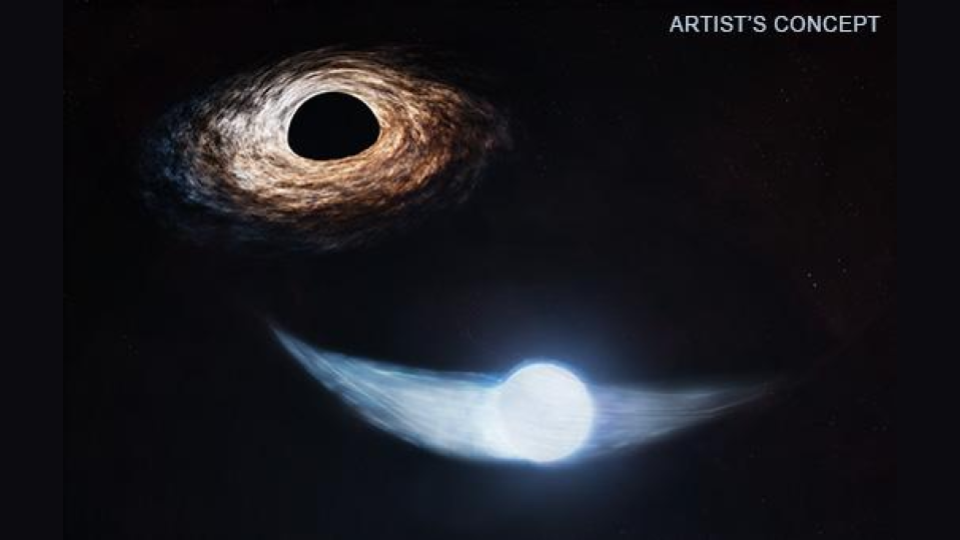
While monitoring the sky with optical systems, we’ve found some really weird stuff. Back in 2018, the All Sky Automated Survey for Super Novae discovered a brightening galaxy. Follow -up observations in the X-Ray found the kinds of high energy light that signals a black hole is tearing apart and feeding on a star. When the light faded away, it was assumed the star was gone and the excitement was over, but… it returned about 1200 days later. This second flare wasn’t as impressive as the first, but it was enough to let researchers calculate the shredded stars orbit and predict when what ever remains might be gobbled up.
According to researcher Eric Coughlin, “ We think that a third meal by the black hole, if anything is left of the star, will begin between May and August of 2025 and last for almost two years. This will probably be more of a snack than a full meal because the second meal was smaller than the first, and the star is being whittled away.”
Of course, it also might not. It could be the star has been completely consumed, or something we can’t anticipate has occurred. The universe doesn’t always do what we expect.
Let’s consider for a moment the star system T Corona Borealis. Appearing as a single star in your standard backyard telescope, this is a binary star system consisting of a white dwarf and red giant star. Over the decades, this system has been seen to radically increase in brightness every 79-80 years and it was predicted the next brightening, or Nova, would occur this month – August 2024. As of this episode’s recording on August 20, the system has done nothing… but it should do something… so… ah… The Corona Borealis system is observable in the evening sky through late November, when it sets for the winter. It can be seen easily with small scopes and there are finding charts linked from our website.
Here is to hoping that the system goes off sooner than later. It would be super frustrating to have it go nova when the system is only up during the day.
Sadly, the universe is going to do what it wants when it wants and doesn’t care about our day night cycle.
